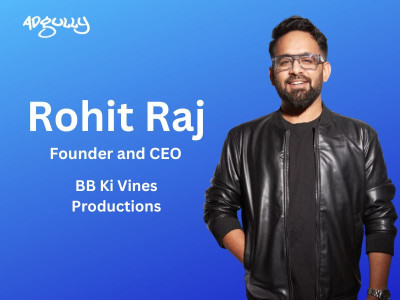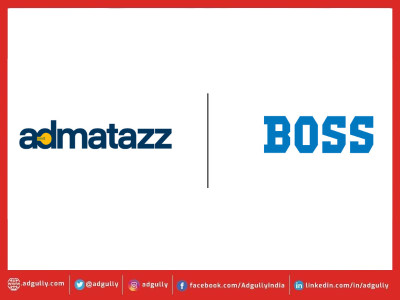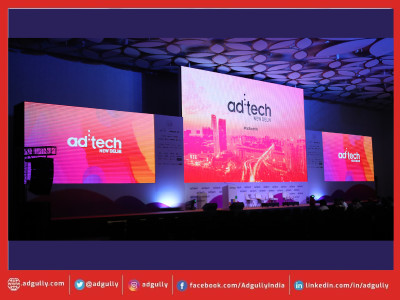Consumer Trust: COVID-19 Edition
As the pandemic disrupted supply chains and functioning of institutions, the faith of consumers in organisations in took of severe hit. In media for example, marketers made a swift shift to digital channels as traditional media was disrupted by the pandemic. Even communication of brands and platforms was aimed at bringing ease of mind and building trust with the consumer.
Sandeep Balani, Head Of India, Outbrain takes a critical look at the currency called Consumer Trust in a post COVID era.
Consumer trust. If there's one thing that 2020 has taught this industry, marketers and publishers alike, it’s that consumer trust is the virtue we must strive for. But while we might all have different definitions of it, the underlying definition is the same.
From the laws set forth to safeguard consumer privacy, to the touchpoints marketers utilize to target their consumers, to the very way brands speak with consumers, trust is crucial. But it’s built beyond cookies and required regulations. Instead, it’s about how we engage with the consumer. And while this is top of mind for all of us, I would challenge us further.
Most may not be considering what trust really means for a business in 2021. We may not be ready to consider what a post-COVID world looks like in the eyes of the consumer, given we’re still in the trenches of the pandemic.
Today, it’s time to look into what trust means — for the consumer, publisher, and advertiser. What it means in 2021, what it means to be stronger, bolder and faster. And most importantly, what it means to challenge the duopoly.
2021: The Year of Trust
Recent developments, including shifts in consumer behavior, purpose-driven marketing, and movements for change and social justice, have positively influenced our society. And COVID-19 has influenced how brands are interacting with consumers, by forcing them to create a personalized online presence. Brands now have to operate differently within the digital landscape, including creating diverse messaging and building trust online with consumers, which we know is a difficult feat without that seemingly human interaction.
The Facebook Boycott caused quite a stir earlier this year, especially for brands who advertise on the platform. The campaign came at a crucial time, one where major brands and platforms needed to take a stance against hate and injustice. On the contrary, it feels as if Facebook allowed all types of content for the sake of growth and the lack of willingness to become an arbiter. Not only did this cause a lack of trust amongst consumers, it forced brands to reconsider their relationship with the tech giant.
We know one thing is true — people trust people more than they do brands. They trust personal reviews, testimonials, and ratings. While consumers are often wary of ads, hearing feedback from other like-minded consumers validates one’s own opinion and provides a fuller picture.
Trust in the Ecosystem
GDPR, CCPA — all created to set guidelines and boundaries to how consumer’s data is being used. But beyond that, these regulations help bring transparency to an otherwise murky environment. They are forcing companies to identify how to target consumers within the limits of the law.
These regulations are forcing marketers to relinquish much of their dependence on behavioral data collection. Now, marketers must consider the new process for collecting an individual’s consent to data-gathering and processing, and what it means to be active, versus passive, for example. Companies must ensure users are willing to have their personal data harvested across the digital and physical worlds, on- and off-platform, and most importantly understand what that means for marketing purposes. Essentially, marketers are asking consumers to trust that their data is secure, while not being used for malicious purposes.
Challenging the Duopoly
This year has been incremental in breaking down the walls of the duopoly, with Facebook receiving a brunt of the criticism. #StopHateforProfit gained popularity in response to hate speech and false information on the Facebook platform. Google’s being sued by the United States Department of Justice for violating antitrust laws. And these campaigns have led to a bigger battle — one focused on the spread of misinformation and fake news.
Enter the open web — a powerful alternative to the rose-colored lens of the duopoly. Not only does it provide users with more options to engage with brands and publishers, but it allows for more seamless and native experiences, personalized to users. Expanding outside of the walled gardens to the open web and native advertising will be crucial for marketers looking to continue effectively attributing their campaign performance in years to come. The open web promotes trust and transparency, and provides opportunity to engage audiences as they consume quality journalism rather than the uncontrolled, user-generated content of the duopoly.
Focus on social issues that matter to their audience, and consider what can be done to address. Is it an ad showing support? A front page dedicated to the movement? Brands are not governments and are not there to solve all problems of society. However, if they can help in some way, then they have a responsibility to do so. For consumers, this will provide significant, and can lead to increased trust due to a brand’s social conscience.
If 2020 taught us anything, it’s that consumer trust means everything. It's no secret that many consumers are skeptical of advertising, and even more so now. Years of pop-up and intrusive ads, fake news, and offensive content has made people become suspicious and wary of ads.
And as brands prepare for the changes 2021 will bring, they need to remember that trust and transparency are crucial. Without this, not only will consumers continue to distrust ads and marketing materials, but we’ll see a decrease in brand loyalty and engagement. Consumers need something to believe in, and they need brands to do the same.
Register Now to save your seat for the most in-demand event of 2021!
















Share
Facebook
YouTube
Tweet
Twitter
LinkedIn